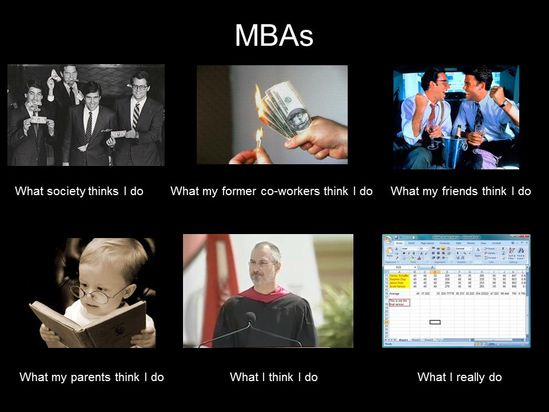To MBA or Not to MBA? A Career Investment Worth Considering
Key Factors to Consider in a Cost-Benefit Analysis
As a recent MIT MBA graduate, I’ve had quite a few people ask me about the value of an MBA – particularly recently as round 2 deadlines approach. Like any major investment, pursuing an MBA requires careful analysis of your goals, finances, and options. Here's a look at how I approached weighing the pros and cons to determine if the degree made sense for me.
When an MBA Makes Sense
💼 Significant career switches
An MBA often enables a significant career pivot, especially into competitive fields like investment banking, consulting, private equity, or VC/PE. The structured recruiting pipeline gives access to roles that are otherwise difficult to break into.
Pro Tip: The MBA is a great opportunity to try things. I highly recommend taking advantage of a pre-MBA internship which allows you to test out a new space before formally stepping into full-time recruiting. For a more unstructured role like VC, it also gives you critical experience that you can speak to while recruiting.
🎲 Risk free time to explore
Aside from advancing your career, an MBA also carves out space for personal growth and reflection that can clarify your long-term trajectory. The nature of business school frees up more time for exploration compared to the rigidity of full-time work. You can broaden horizons through diverse classes, new hobbies, and immersive international experiences. This freedom allows introspection about who you are, what motivates you, and where you want to go next. An MBA gifts permission to reset, gain perspective, and chart an aligned path forward. Of course academics and recruiting still demand rigorous effort but relative to the workforce, business school offers precious latitude for self-discovery. With an open mind and introspective focus, an MBA provides runway to thoughtfully craft a career and life path that honors your best self.
🏌🏽♂️ Network, Network, Network
One of the greatest assets an MBA delivers is access to a new network that accelerates your career possibilities. The connections forged expand far beyond immediate classmates to alumni at top firms across the globe. Due to our common background, I will be able to reach out to MIT grads worldwide for the rest of my career, giving me access to deals, start-ups, and resources I otherwise would not be able to connect with.
Through the MBA, you gain bridges across cultures and industries via classmates from all backgrounds. The network diversity catalyzes innovation and deals by enabling you to tap expertise across sectors, roles, and more. Although hard to quantify, this high-caliber network is one of the largest assets an MBA provides.
When an MBA Doesn’t Make Sense
💵 Cost Considerations
Pursuing an MBA can be a significant financial investment. With tuition fees, living expenses, and the potential loss of income during the program, the financial burden can be substantial. For individuals with limited financial resources or those who are not confident about securing a high-paying job after graduation, the cost of an MBA might not be justifiable.
🛠️ Career Path Suitability
While an MBA can open doors to various career opportunities, it may not be the most suitable option for everyone - particularly ones that index on practical experience (i.e. start-up operations). Some individuals may already possess the necessary skills and experience for their desired career path without needing an MBA. For example, individuals who are already successful entrepreneurs or have gained significant access to deal flow might find that the time and effort required for an MBA program may not provide substantial additional value to their career trajectory in venture.
👨🏻💻 Alternative Skill Development
In some cases, alternative forms of education or skill development may be more relevant and cost-effective than pursuing an MBA. With the rise of online courses, specialized certifications, and workshops, individuals can acquire specific skills tailored to their career goals without the time and financial commitment of a full-time MBA program. For instance, those interested in enhancing their skills in areas like data analysis, financial modeling, or due diligence may find that targeted short-term courses provide them with the expertise needed to excel in their chosen field, without the need for a comprehensive business education provided by an MBA program.
Considerations
Career Goals
Life & Family Commitments
Financials / Opportunity Costs
School Choice / Reputation
Final Thoughts
An MBA opens doors, expands perspectives, and creates opportunities that otherwise may not be accessible. But it also requires significant time, money, and effort that provide no guarantee of success for a pivot into venture. It’s critical to analyze your goals and motivations carefully before deciding if this substantial investment is right for your career aspirations. With eyes wide open to both the potential rewards and risks, you can make the MBA choice that best serves your career and life.





